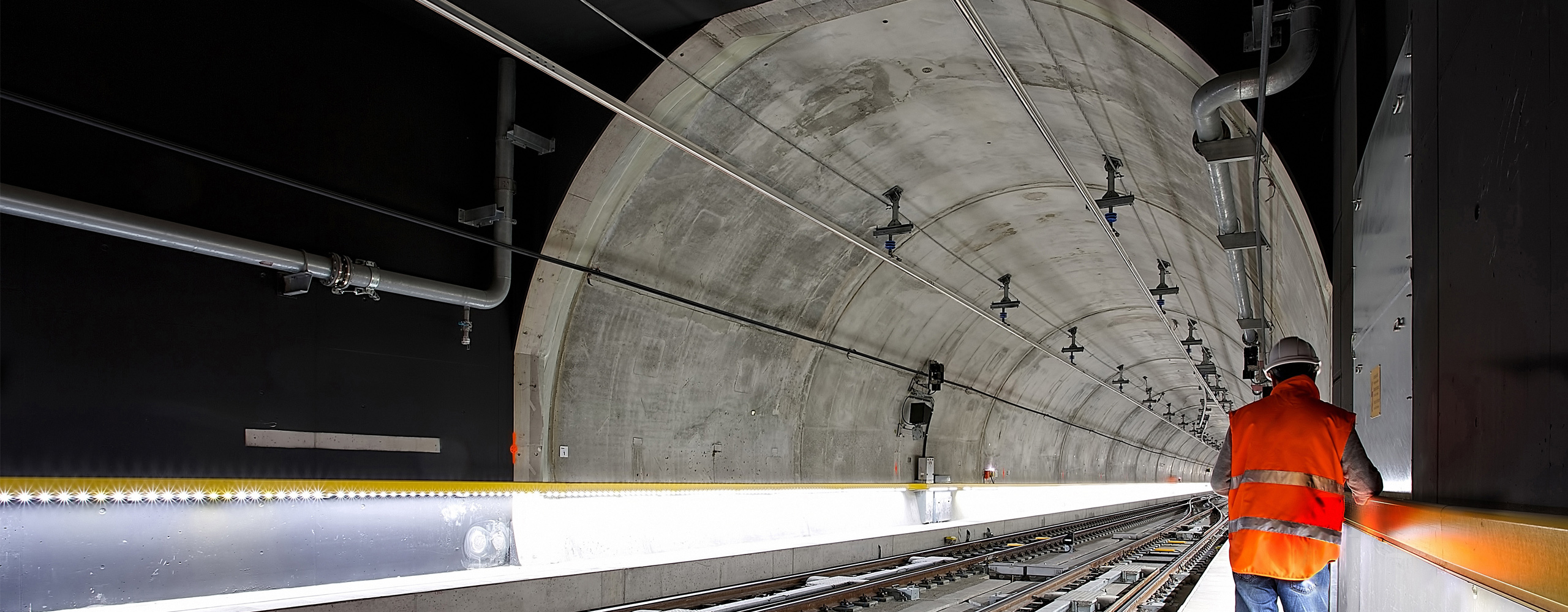
KATS (Kinematic Analysis Tools for Slopes) is a tool developed by Itasca that assesses instabilities caused by day-lighting wedges and planar failures formed when different structural sets interact with the orientation of a given slope. KATS main application is for bench-berm scale analysis, which is understood as a first step in the mining slope design process for moderate and competent rock masses. It is also possible to perform a kinematic analysis in inter-ramp scale.
Unlike other tools currently available on the geotechnical analysis market, through a single automated process KATS performs a probabilistic or deterministic assessment of the behavior of a large number of slope configurations defined by many structural domains and many orientations and geometries of the slope. The results from the analysis can be provided using a variety of parameters, such as loss of crest, spill lengths, bench face angle distribution, etc. All these results allow a geometric definition of the interramp angles (IRA) that achieve the acceptability criteria defined by the operation from the point of view of stability and safety of personnel and equipment.
Advantages of KATS
- Very quick analyses (a few minutes of computer time for a full open pit)
- Simple and easy to learn
- Most inputs are readily available at mine sites
- Can be calibrated given the performance of the slopes
- Estimates the spill length of the failure mode (not available in other commercial software)
- Can apply a probabilistic approach to produce cumulative frequency analysis (CFA) charts (not available in other commercial software), which is a typical methodology for bench scale design
For more information about KATS or to purchase it, please contact Itasca's office in Chile (ICSpA).
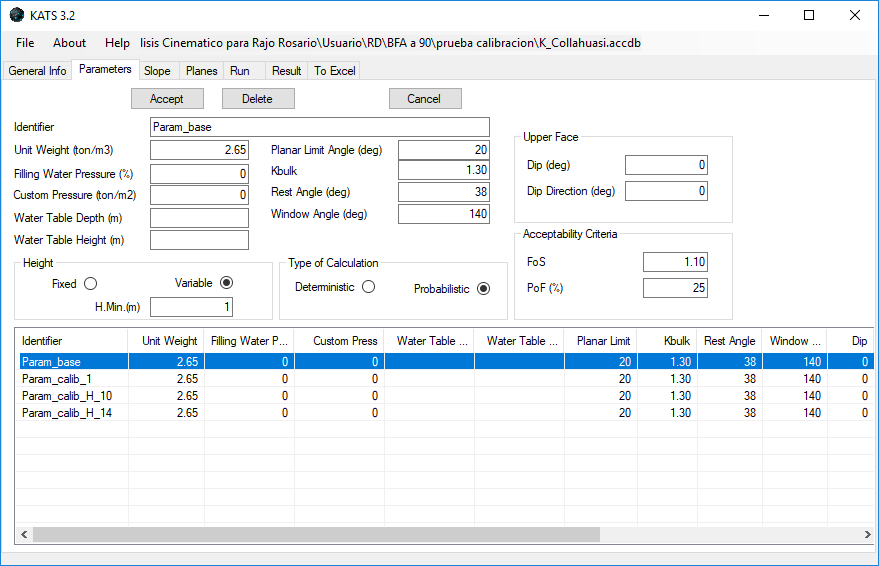
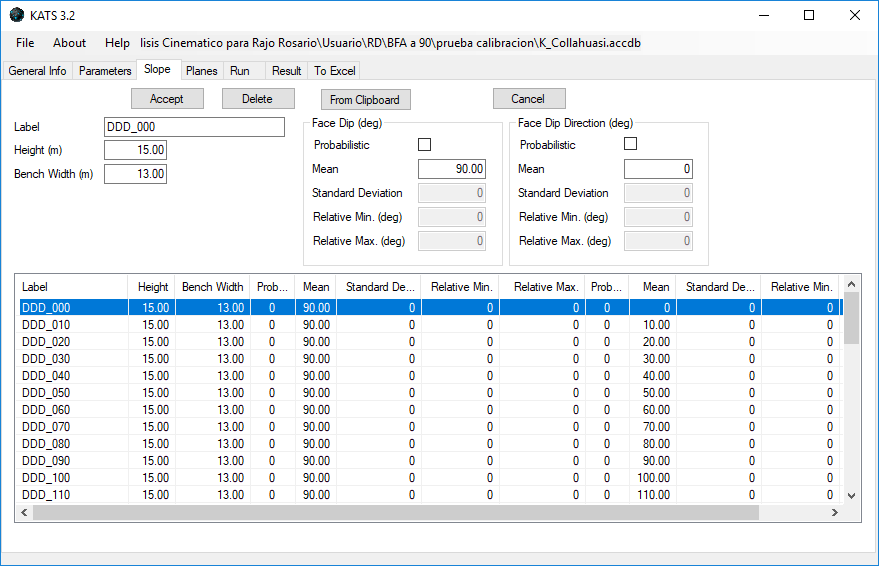
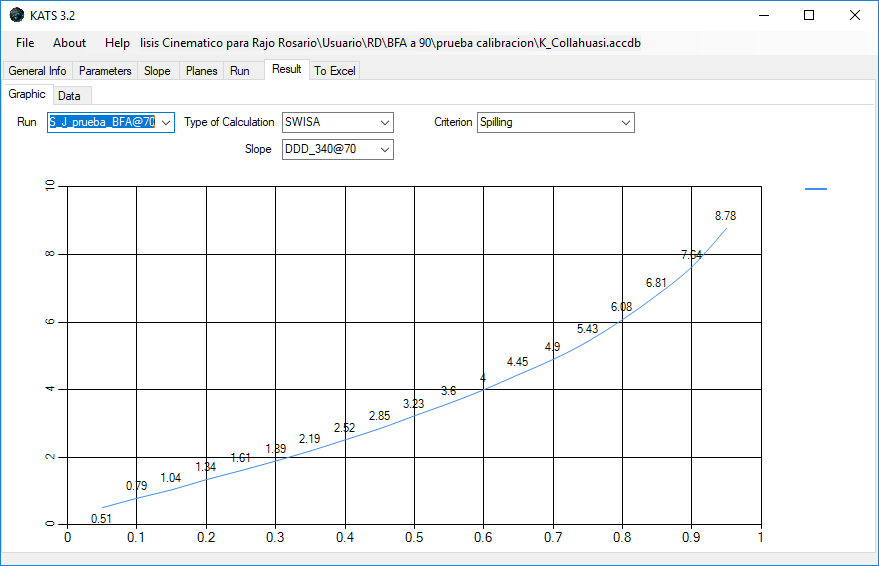
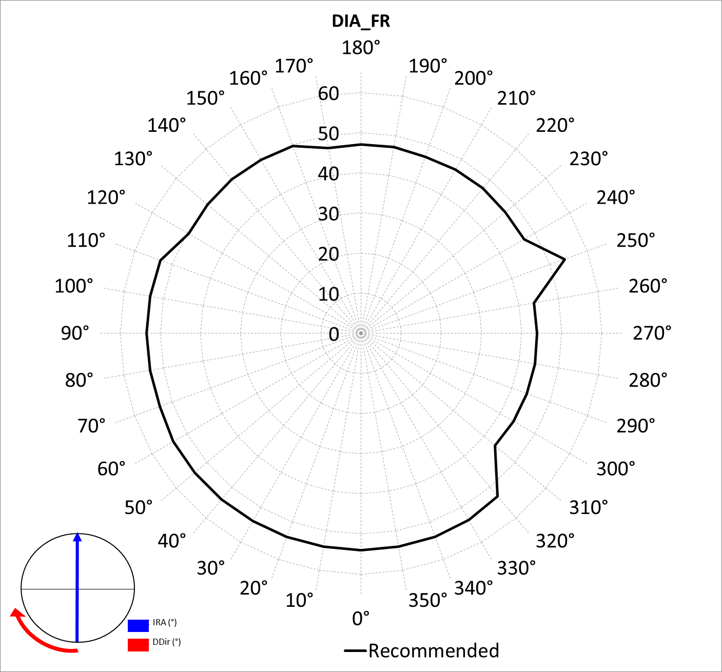
Results Provided by KATS
- Cumulative frequency curves (per each analyzed orientation):
- Volume
- Spill length
- Backbreak
- Effective bench face angle
- Radar chart with (post-processed in Excel):
- Recommended inter ramp angles
- Recommended berm width
- Expected Backbreak
- Expected effective bench face angle
